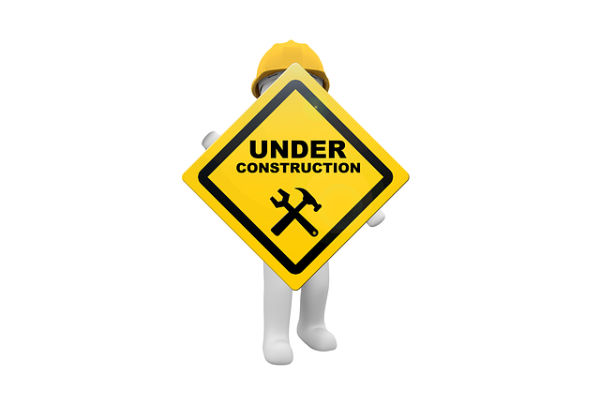The Ultimate Advice for Addiction and Recovery
- Jul 30, 2019
- 10 min read
Updated: Aug 22, 2025

If you're looking for guidance on overcoming addiction, you've come to the right place. The journey to recovery is more than just stopping the use of a substance; it's about building a new life. By focusing on key areas like managing triggers, building a support system, and creating a healthy lifestyle, you can build a solid foundation for long-term sobriety.
How do I start the journey to recovery from addiction?
The first step in recovering from addiction is recognizing that it’s a slow, gradual process, not an overnight fix. You have to be patient and learn to manage cravings and temptations using new skills.
There's a lot more to learn about building a fulfilling life in recovery. Keep reading to discover proven strategies, from repairing relationships to setting meaningful goals, that can help you sustain your sobriety and thrive.
Recovering from an addiction requires abstinence from drugs or other addictive substances.
However, the process of recovery encompasses so much more than simply stopping the use; it involves creating a different lifestyle where it is easier not to use drugs or alcohol.
To make such a complete and lasting change, you have to go against everything you have grown accustomed to and find the courage to risk the unfamiliar.
And that’s just the easy part. Time and time again, your fiery willpower will be ignited, and temptation and craving will challenge your resolve.
Abstinence will be a formidable challenge that demands all the strength you can master and then some, but it can be done. Different people in recovery have varying opinions on what it takes to have long-term abstinence from drug use.
Some will swear on everything they hold dear that support groups and sponsors are the cornerstones of recovery. Others will emphasize spiritual awakening as what makes or breaks sobriety.
Nevertheless, there are some things that individuals in the addiction community with diverse approaches to addiction treatment can agree on. If you're navigating this path, seeking out trusted advice for addiction and recovery can make a real difference.
Here’s a list of the ultimate advice:

Advice for Addiction and Recovery: Recovery is a Slow Process
Addiction is a life-long chronic disease; similar to diabetes, cancer, or any other life-threatening illness.
Though addiction is virtually incurable, addicts can slowly learn to manage cravings and resist temptation using the skills learned throughout the recovery process.
However, some addicts often want something that resembles a magic spell which instantly makes them better with no effort on their part, or at least allow them to use again without all the negative repercussions.
Others take on a more straight forward approach of charging back into the world to wrestle their addiction into submission, only to go down like a lead balloon.
Succeeding in recovery is not something that happens overnight.
Addiction affects you as a whole; mind, body, and soul.
Drugs rewire the neural pathways of your brain such that you need higher than normal levels of dopamine to feel happy.
Living from one high to the next also doesn’t give you much time to nourish your body, get some exercise, or even sleep well.
Adjusting to a new lifestyle will be a slow, gradual process. Attempts to rush the process is the surest way to endanger your sobriety and put a wrench in your efforts to recover.
Avoid High-Risk Situations
High-risk situations are any circumstances, places, or sounds that create strong urges to use drugs.
Turning to drugs to avoid the situation reinforces the behavior, and in the future, when faced with a similar scenario, you are likely to use again.
Addiction is sneaky; you may not always be able to identify high-risk situations until your smack in the middle of one.
But if you learn to look for them, you won’t be caught entirely off guard. You will have developed coping skills to curb little cravings from spiraling into significant urges.
A recovering alcoholic puts their sobriety at risk if they continue to meet friends for happy hour.
Even if you don’t drink, such an environment is fertile ground for cravings to mature. Avoid your drinking buddies, your favorite bar joint, and don’t keep alcohol in the house.
Every addict has different triggers. Make a list of your high-risk situations. You never know when the list will come in handy and save you from slipping back into drug use.
Manage Cravings
Cravings can surface at any time during recovery. They should not be taken as a sign of a moral failing or a character flaw but rather as merely a normal part of the recovery process.
What you should focus on is how to prevent cravings from escalating to drugs or alcohol use, toppling your efforts to avoid relapsing like a gust of wind to a house of cards.
The urge to use can manifest in the form of a physical response. Where you feel your chest tightening, your stomach churning, or your muscles aching. Cravings can also be mental; corrupting your thoughts, and making a three-ring-circus of your emotions, such that the single idea that keeps running through your mind is “I need it now” or “I can’t go on without it.”
You need to learn how to manage your cravings successfully.
Fortunately, the urges don’t last long unless you actively sustain them with your attention.
Learn not to give in to the temptation, and the craving will soon pass. If a situation is the cause of your trigger, leave that environment.
Focus your mind on the reasons you chose to be sober. Put the urge into perspective.
A craving will not kill you but using may buy you a first-class ticket on the Relapse train to Overdose Street, Mortuary Avenue.
Develop tactics, such as counter statements, to dispute the irrationality of the craving. It will help dispel the urge faster and keep you on the path of sobriety.
Learn to Relax
As an addict, your idea of having a good time involves finding a fix and getting high.
Whenever you need an escape from the trials of everyday life or reward yourself for a job well done, drugs and alcohol were your go-to.
Now that you are trying to kick the habit, you need to find an alternative method to relieve tension.
Otherwise, all that bottled up energy will build up and your attempts to stay sober will be like making sandcastles at the edge of the shore during high tide.
Some addicts will claim they are too busy to relax. Where did you get the time to maintain your addiction?
Take some time from your schedule and learn to relax. It doesn’t have to be anything elaborate, like learning to skydive or take up a big chunk of your time for it to be effective. For instance, if you love Mother Nature, you can take up gardening, outdoor meditation, or yoga to align your chakras.
The key to relaxation is engaging in an activity that holds your interest and turns off the chatter in your mind; allowing you to let loose, rejuvenate, and recharge your batteries; fortifying you to continue marching to the sobriety tune.

In the course of your addiction, you have likely disappointed or wronged a few people. If repairing the damage will not cause more harm than good, then you need to own up to your mistakes and make amends. Allowing the shame and guilt of your previous blunders to weigh on your conscience may eventually lead you to seek out other means of absolution.
That’s why making amends is a vital part of the recovery process. Repairing the damage needs to take an active form. For example, if you once broke the windows of our parents house in a drunken rage, you can make amends by reimbursing the cost of repair or fixing up the windows yourself.
Only asking a sovereign being for forgiveness or meditating on your sins just won’t cut it. Your loved ones may have forgiven you and accepted you back into the fold, but if you do not repair the damage you caused, the old hurts will continue to fester and rear its ugly head in their behavior towards you. Don’t let that happen. Go the extra mile to make amends and create a healthy relationship.
Build a Support System
There’s always strength in numbers; this is especially true when it comes to addiction.
Having people who want you to stay sober will save you from falling off the wagon innumerable times.
During the early days of recovery, you will be tempted to retreat into yourself and hide your shame and guilt of being an addict from the world. After the brouhaha of detox and rehab, things have decelerated to Gaping Loneliness tempting you to hop back to your dependency.
You will need people who care what happens to you to draw you out of hiding, encouraging you to talk about your feelings and the challenges you are facing.
There’s nobody better to hold you accountable to your sobriety than those in your support system. Surround yourself with positive people who are happily living your Sobriety Dream.
Such a strong network will be there for you no matter what, and even if you relapse, they will be there to motivate you to get back on the path to recovery.
It takes a village to nurture Sobriety; a stable support system can set you up for a successful long-term recovery.

Practicing self-care is a big part of the recovery process. Addiction takes a tremendous toll on your mental and physical state. All those late nights when trying to score. Getting home at the break of dawn to catch scarcely forty winks of sleep before having to drag yourself to work, with only last night’s binge eating meals full of preservatives or microwavable fast foods to sustain you, leaving your already strained health tank running on fumes.
Cultivating a healthy lifestyle will help reverse the damage. Whether you take a walk around the neighborhood or start cycling to work, a regular exercise routine improves energy levels.
You are making a terrific impact on your sense of self-worth and well-being.
Rediscover the sensory pleasure of food while providing your body with much-needed nourishment. Make a habit of going to bed early to get enough sleep so you can wake up mentally alert and ready to take life by the horns. Embracing a healthy lifestyle not only improves your health but also gives you the strength to stay sober.
Handle Finances
One thing people don’t like to talk about is money, and recovering addicts are no different.
To fund your addiction, you will probably have taken a third mortgage on your house, used up all your savings, or/and borrowed from family, friends, and some questionable characters.
You are leaving your finances in more disarray than the US economy during the Depression. Resist the temptation to shirk the astronomical payments due and flush the bills down a toilet.
Remember that a big part of recovery is becoming accountable for your actions. You are not to blame for your addiction, but you need to own up to all your activities while under the influence.
Money problems lead to stress, which will sooner or later make you turn to drugs as a means of escape.
As soon as you are out of rehab, and have established a routine, start looking for a job. With the help of a financial advisor, make a plan on how you will pay off all your debt.
The process may be slow and frustrating, but having a steady cash flow- that isn’t paying for drugs- will help you stay afloat. Staying on top of your finances will go a long way in ensuring you live the healthy, fulfilling the life you hoped for.

Adopting a healthy lifestyle, handling finances, and building a support system will all amount to jack unless you set some goals. Drugs and alcohol had taken hold of all your thoughts and imprisoned all of your hopes and dreams. It is time you found the keys and set them free. Working towards something makes a lifetime of abstinence not seem so unachievable.
Figure out what you else you want from life other than sobriety. Would you like to start a business? Go back to school and finish that degree you dropped out of? Or move out of your parents’ house and start being independent? Your future is a blank slate, and what follows is entirely up to you. Be sure to celebrate once you realize any of your goals, whether big or small. It will motivate you to keep on reaching for your dreams.
How to Stay Motivated to Stay Sober (Even When You Don’t Want to)
One of the biggest questions I get from people in early sobriety is how to stay motivated to stay sober. In this video, we give some tips on how to maintain this motivation even when you don’t want to stay sober.
Frequently Asked Questions:
• What are some high-risk situations to avoid in recovery?
High-risk situations are any circumstances, places, or sounds that create strong urges to use. For a recovering alcoholic, this could be meeting friends at a bar or keeping alcohol in the house.
• How should I manage cravings during recovery?
Cravings are a normal part of recovery. When they surface, you should focus on not giving in to the temptation. Cravings don't last long unless you actively sustain them, so try to distract yourself or leave the situation.
• Why is it important to repair damage caused by addiction?
Making amends is a vital part of recovery. Allowing shame and guilt to weigh on you can lead you to seek other ways to cope. Repairing the damage actively helps heal old hurts and build healthy relationships.
• What is the benefit of having a support system?
A support system provides strength and accountability. Surrounding yourself with positive people who support your sobriety can prevent you from relapsing and motivate you to get back on track if you do.
• How does a healthy lifestyle help with recovery?
Practicing self-care by cultivating a healthy lifestyle can help reverse the physical and mental damage caused by addiction. Regular exercise, good nutrition, and adequate sleep provide the strength needed to stay sober.
If you or a loved one are struggling with addiction, remember that the journey to recovery doesn't have to be a solitary one. We at Chateau Health and Wellness Treatment Center are here to support you in every aspect of your path to sobriety. Our program is designed to help you navigate the complexities of managing cravings, building a strong support system, and developing the healthy lifestyle you deserve. We're committed to providing the personalized care and guidance you need to reclaim your life. When you're ready to take the next step, call us at (435) 222-5225—we’re here to help.

About The Author
Ben Pearson, LCSW - Clinical Director
With 19 years of experience, Ben Pearson specializes in adolescent and family therapy, de-escalation, and high-risk interventions. As a former Clinical Director of an intensive outpatient program, he played a key role in clinical interventions and group therapy. With 15+ years in wilderness treatment and over a decade as a clinician, Ben has helped countless individuals and families navigate mental health and recovery challenges.
Danny Warner, CEO of Chateau Health and Wellness
Brings a wealth of experience in business operations, strategic alliances, and turnaround management, with prior leadership roles at Mediconnect Global, Klever Marketing, and WO Investing, Inc. A graduate of Brigham Young University in Economics and History, Danny has a proven track record of delivering results across diverse industries. His most transformative role, however, was as a trail walker and counselor for troubled teens at the Anasazi Foundation, where he directly impacted young lives, a personal commitment to transformation that now drives his leadership at Chateau.
Austin Pederson, Executive Director of Chateau Health and Wellness
Brings over eight years of experience revolutionizing mental health and substance abuse treatment through compassionate care and innovative business strategies. Inspired by his own recovery journey, Austin has developed impactful programs tailored to individuals facing trauma and stress while fostering comprehensive support systems that prioritize holistic wellness. His empathetic leadership extends to educating and assisting families, ensuring lasting recovery for clients and their loved ones.









